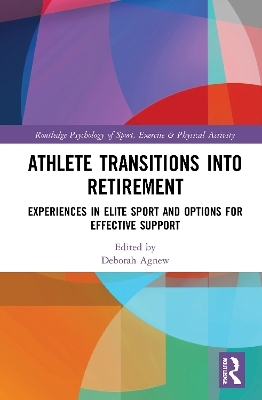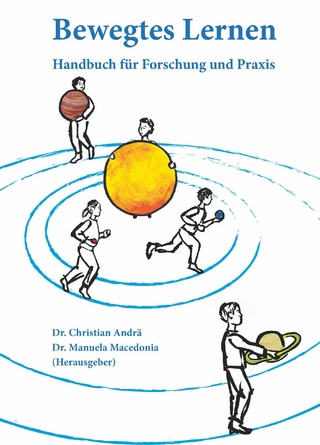
Athlete Transitions into Retirement
Routledge (Verlag)
978-1-032-04776-8 (ISBN)
Transitions in sport can be either normative (relatively predictable) or non-normative (less predictable) and are critical times in the development of athlete’s careers. Whilst retirement from sport is inevitable, the timing of retirement can be less predictable. If an athlete copes well with the transition they may be better able to adjust to life after sport. However, not coping with the transition can lead to a crisis and negative consequences for the athlete.
Transition periods from sport and in particular retirement from sport have been identified as high-risk periods for athletes in terms of psychological distress. However, circumstances surrounding the athlete’s retirement are a critical factor in the transition into life after sport. Voluntarily retiring from sport for example, leads to a smoother transition than being forced into retirement through injury or deselection. Research indicates that retirement from sport should be seen as a process rather than a single moment, with many athletes taking up to 2 years to successfully transition out of sport.
Currently, there are few bodies of work that are solely devoted to retirement transition. Athlete Transitions into Retirement: Experiences in Elite Sport and Options for Effective Support provides contemporary viewpoints on athlete transitions from elite sport in a global context. This volume is a collaboration of research from leading authors around the world, offering global perspectives to athlete transitions into retirement and is key reading for both researchers and practitioners in the fields of Sport Psychology and Coaching as well as the Athletes themselves.
Deborah Agnew, PhD is a senior lecturer in the Bachelor of Sport, Health and Physical Activity in the College of Education, Psychology and Social Work at Flinders University, Australia.
Introduction: Athlete Transitions in Sport
Part 1: Sociocultural and psychological aspects of athlete retirement transition
1. The Influence of the Cultural Context on the Transition Out of Elite Sport in
Europe
2. Psychosocial Aspects of Sport Retirement Amongst Collegiate Student-Athletes in
The United States
3. The Professionalisation of Paralympic Sport and Implications for the Retirement
Experiences of Paralympians
4. Considering the Connections Between Doping and Transitions Out of Sport:
DesperateTimes and Desperate Measures?
5. Exploring Transitions in UK Professional Football
6. Athlete Identity and Career Transition: Implications for Retirement Outcomes
7. Retirement through Injury: A Case Study Approach Exploring Mental Health
Issues and the Retirement Experiences of Two Ex-English Premier League Footballers
Part 2: Supporting athletes transitioning into retirement
8. Delisted Footballers: Supporting Well-being through Continued Participation in
State Based Levels
9. Understanding Parents’ Experiences with Athlete Retirement
Part 3: Contextual insights from global sports
10. The Next Logical Step? An Examination of Elite Athletes’ Transitions into Post-
athletic High Performance Coaching Roles
11. Time’s up! Indigenous Australian Sportsmen and Athlete Transitions
12. Transitions in Disability Sports
13. A Holistic Perspective to Elite Athletes’ Career Development and Post-Sport
Career Transition in an African Context
14. Autobiographical Insights into Athlete Transitions from Sport
Conclusion
| Erscheinungsdatum | 28.09.2023 |
|---|---|
| Reihe/Serie | Routledge Psychology of Sport, Exercise and Physical Activity |
| Zusatzinfo | 4 Tables, black and white; 4 Line drawings, black and white; 4 Illustrations, black and white |
| Verlagsort | London |
| Sprache | englisch |
| Maße | 156 x 234 mm |
| Gewicht | 426 g |
| Themenwelt | Sachbuch/Ratgeber ► Sport |
| Weitere Fachgebiete ► Sportwissenschaft | |
| ISBN-10 | 1-032-04776-3 / 1032047763 |
| ISBN-13 | 978-1-032-04776-8 / 9781032047768 |
| Zustand | Neuware |
| Haben Sie eine Frage zum Produkt? |
aus dem Bereich


